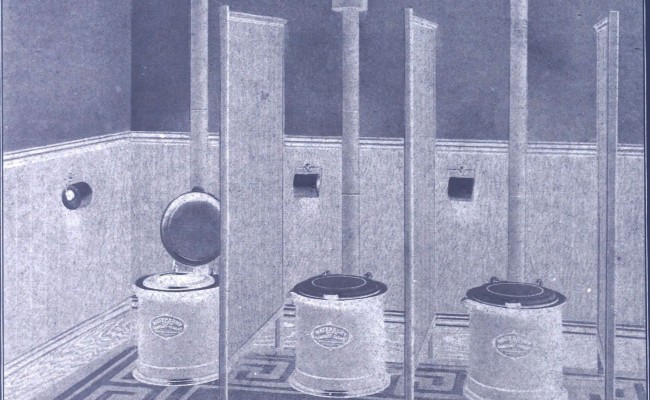On 31 March every year, transgender people and their friends, families and loved ones celebrate Transgender Day of Visibility.
This year, one might be under the impression that transgender people have never been so visible nor been so accepted, from the Time Magazine cover declaring the ‘trans tipping point’ to the coming out of reality TV star Caitlyn Jenner, to more meaningful progress in access to medical treatment and human rights across much of the world. But visibility has always been a double-edged sword for transgender people, and while there have always been transphobic responses to trans gains (Germaine Greer, for instance, has been predictably awful for forty years), it was inevitable at some point that a substantial political backlash would emerge, as it has recently in the United States.
In North Carolina in March, House Bill 2 – The Public Facilities and Privacy Act was passed, banning individuals from using public bathrooms that do not correspond to their ‘biological’ sex. The legislation was a response to the city of Charlotte passing a non-discrimination ordination that allowed for, among other things, trans access to the bathrooms with which sex they identify. At the time, Republican governor Pat McCrory tweeted:
Ordinance defied common sense, allowing men to use women’s bathroom/locker room for instance. That’s why I signed bipartisan bill to stop it
— Pat McCrory (@PatMcCroryNC) March 24, 2016
While there has been wide criticism of the North Carolina bill, it is part of a broader cultural movement against transgender people that has gone largely unnoticed and unreported. According to LGBT activist group Human Rights Campaign, 44 anti-trans bills have been filed in the United States in 2016 alone, including 29 that target trans equal access to sex segregated areas like bathrooms, locker rooms and sports. North Carolina is just the tip of the iceberg.
And yet the state represents a specifically biopolitical response to transgender bodies, which are to be controlled via their access to public space and quarantined from the general population. Pat McCrocy’s tweet states the reasoning behind bathroom bills succinctly: they are about protecting ‘women’ (always already only cisgender women) from sexual violence at the hands of ‘men’ (especially and always already including transgender women).
In essence, transgender people are being criminalised for using the ‘wrong’ bathroom – that is to say, the bathroom that accords with their gender identity – in exchange for the supposed protection of ‘women’ from a non-existent epidemic of trans violence. Thirty years of research into trans equal access to public accommodations has proven that fears of conservatives on that front are almost entirely illusory. There is a curious regime of unknowing from the American right wing there, in which ‘common sense’ ignorance from the likes of McCrocy substitutes substantive research into public health outcomes.
What we do know, however, is that housing transgender people, especially transgender women, in the actual wrong sex segregated facilities – as many countries have done and continue to do in prisons, homeless shelters and schools – actually does result in violence, sexual and otherwise, against transgender communities. So if transgender women do use the men’s toilets as a result of a bathroom bill, that will result in violence, and if they don’t, then they will be arrested and imprisoned in men’s lock-ups and that will result in violence against them, too.
In other words, bathroom bills create an institutional technological apparatus of punishment and control, in which it is impossible for transgender people to avoid the spatialised transphobic violence that is being organised and solicited by the state. Transgender people who pass as their preferred gender will find themselves criminals every time they enter a bathroom, with the thin protection of embodying cisgender body norms, while transgender people who do not pass as their preferred gender – or as any, in the case of many genderqueer people – will find themselves without safe public options any time they need to use the toilet. It is hard to imagine the level of fear that transgender people will live under, unable to perform even the most basic of human activities. Conservatives know very well that transgender people will find it difficult to live in North Carolina as a result of the bill; that is the point.
The rhetoric of supposed trans violence is being used to raise a moral panic – a gendered and sexual contagion in which trans aberrance is to be controlled and contained, and, ideally, removed from public space altogether. It is a fantasy of elimination, fuelled by the desire to create and maintain rigid sex and gender binaries that have no space for transgender people.
It is heartening to see that tech companies like PayPal, who has pulled a proposed operation centre from Charlotte, are responding to the retrogressive legislation, while rock legend Bruce Springsteen has cancelled concerts in North Carolina in solidarity with its trans community. But it will take a broad coalition to defeat the new wave of anti-trans bills sweeping the United States. Transgender people are only a small minority, and will need every voice speaking up against this hatred – for, make no mistake, it is hatred that creates these bills, attacking transgender people’s humanity at its most basic level.
Australians should prepare for this fight to come to our shores, for we know that the Australian Christian Lobby and its allies in the right wing of the Liberal Party take their cues from the most retrogressive homophobic and transphobic policies in the United States. With transphobic ideas being utilised by the ACL and Cory Bernardi against the Safe Schools Coalition recently, we cannot afford to be complacent about the safety of trans rights in Australia.
—



